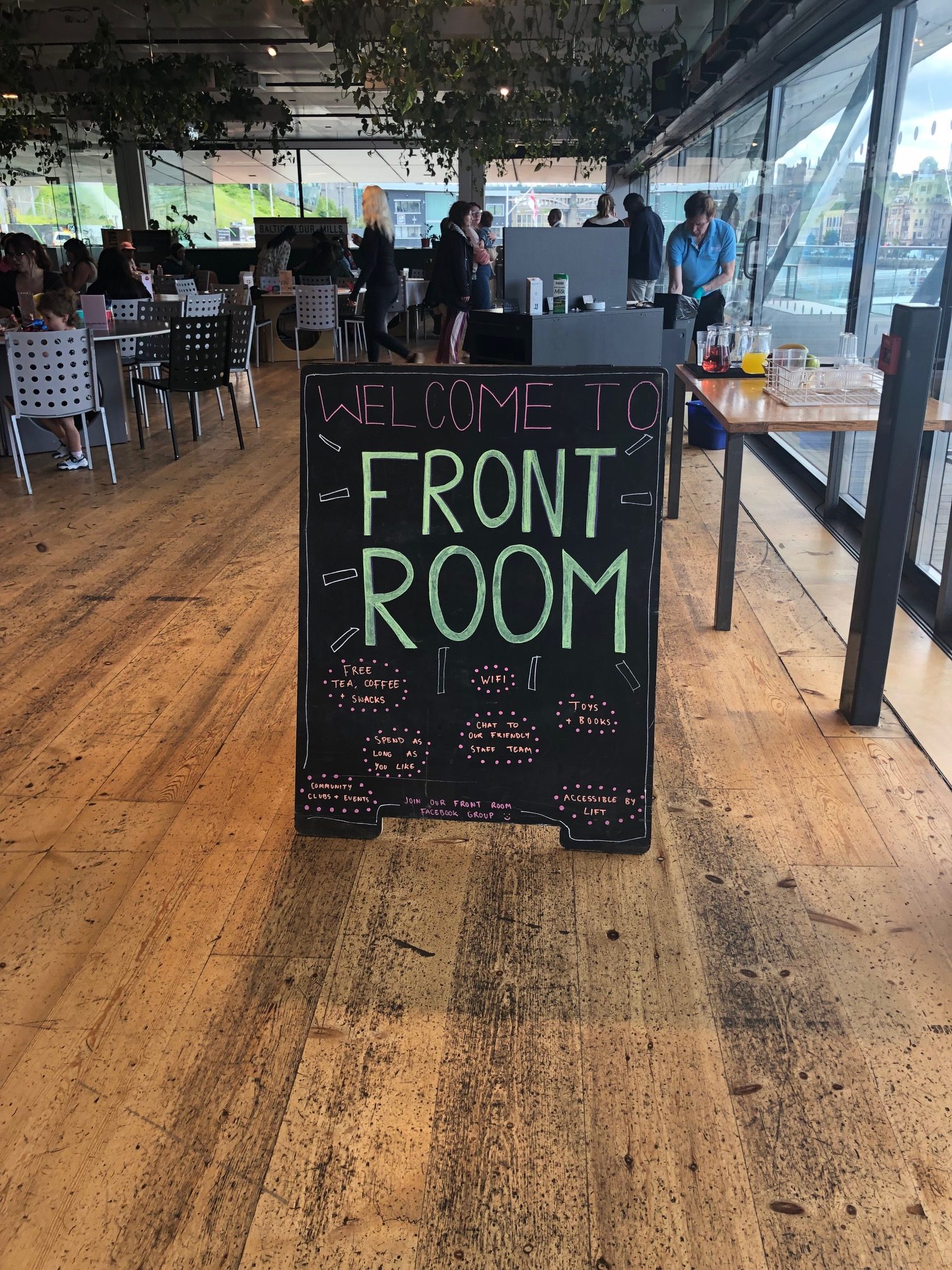Guest blog by Associate Researcher, Tomo Ikegami
My name is Tomo Ikegrami and I am Curator for socially engaged programs in Japan and an Associate Researcher at the Counterpoints Arts. My purpose of research here is to explore how arts and cultural projects drive social change and support migrant communities in the UK. I will bring some ideas to Japan and try to build up art projects which are effective to develop the environment of social communities in Japan.
As part of my exchange I have been supporting Refugee Week UK core team in London. However, during the festival itself I had the opportunity to travel across the UK to experience Refugee Week, having heard so much about Newcastle and what amazing solidarity and support there is I decided to visit Newcastle during Refugee Week. This was my first time visiting Newcastle as well as the first time attending Refugee Week events!
I went there on the 19th and 20th of June. Despite only a one night trip, I saw many different types of events, and each event had a strong purpose to celebrate the creativity and history of refugees and migrants. Overall, I especially felt a strong positivity in the environment of each event and confidence in their expression.
Baltic Center: “Home is a shared meal,” “Home is our bodies.”
There were many activities in a community space called Front Room in the Baltic Center; sharing meals, a yoga workshop, hand massages, and a Henna experience. The environment there was very welcoming and relaxing in that open space, and visitors seemed to enjoy free activities and conversations while having tea and meals. I saw that some people put orange ribbons on their wrists as a symbol of compassion and solidarity during Refugee Week.
I met some people in that space, including Mymona Bibi, who is a writer and English teacher in Newcastle. She expressed her feeling that “people were there to support each other, and as a result, the environment was so much more purposeful. It felt like there was an active push towards a better future that everyone there believed in and supported. And it was so much more important to have that in one of the biggest arts and cultural organizations in the North East, Baltic Center.”
Action Foundation: “InterAction”
Every Thursday morning to afternoon, Action Foundation (an award-winning charity based in Newcastle upon Tyne providing support to disadvantaged refugees, asylum seekers and other migrants across the North East) organizes “InterAction” a free service that provides a safe and supportive space for refugees, asylum seekers, and other migrants. I visited “InterAction” on the 20th of June (World Refugee Day). More than just a Drop-in, it’s a community, where their staff and volunteers offer a warm welcome and trusted advice. On that day, there were special events for Refugee Week, including craft workshops and performances.
Duncan McAuley, the CEO of Action Foundation, told me that “although different people who visit our Drop-in have different problems, but Refugee Week is a celebration, and it is good to be positive. People enjoy this environment.”.
I also attended a talk by three women speakers from refugee communities, part of “Voices of Homes, Women’s Program.”, which aims to highlight the unique experiences and contributions of women from refugee communities. The speech about their experiences brought an impassioned feeling to the audiences. I was impressed by that beautiful environment which indicates safety to speak, and welcoming to share their stories.
Before I started researching Refugee Week as a framework/ model, I was unclear what the role of arts & culture might be in helping foster a more compassionate and understanding society that can work towards communities that are more inclusive and welcoming of refugees and migrants.
However, having experienced Refugee Week and attending local events in Newcastle I now strongly feel that Refugee Week which celebrates the contributions, creativity and resilience of refugees we can bring people together. It is a powerful model of celebrating different cultures, backgrounds and experiences. It creates a space which allows us to speak and share. To feel seen and heard. It also can give us a glimpse into a better future, a more hopeful and positive one in which refugees and migrants can thrive in their new communities, alongside their neighbours. It really is an effective and positive way to help us create “our home”.

